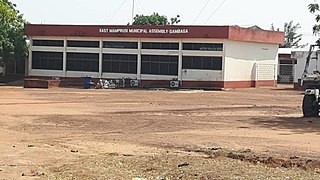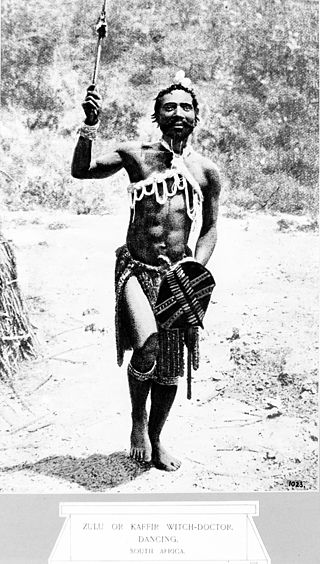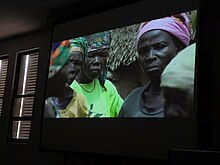
Witchcraft is the use of alleged supernatural powers of magic. A witch is a practitioner of witchcraft. Traditionally, "witchcraft" means the use of magic or supernatural powers to inflict harm or misfortune on others, and this remains the most common and widespread meaning. According to Encyclopedia Britannica, "Witchcraft thus defined exists more in the imagination of contemporaries than in any objective reality", but it "has constituted for many cultures a viable explanation of evil in the world". The belief in witchcraft has been found throughout history in a great number of societies worldwide. Anthropologists have applied the English term "witchcraft" to similar beliefs in occult practices in many different cultures, and societies that have adopted the English language have often internalised the term.

A witch-hunt, or a witch purge, is a search for people who have been labeled witches or a search for evidence of witchcraft. Practicing evil spells or incantations was proscribed and punishable in early human civilizations in the Middle East. In medieval Europe, witch-hunts often arose in connection to charges of heresy from Christianity. An intensive period of witch-hunts occurring in Early Modern Europe and to a smaller extent Colonial America, took place from about 1450 to 1750, spanning the upheavals of the Counter Reformation and the Thirty Years' War, resulting in an estimated 35,000 to 60,000 executions. The last executions of people convicted as witches in Europe took place in the 18th century. In other regions, like Africa and Asia, contemporary witch-hunts have been reported from sub-Saharan Africa and Papua New Guinea, and official legislation against witchcraft is still found in Saudi Arabia and Cameroon today.

The Salem witch trials were a series of hearings and prosecutions of people accused of witchcraft in colonial Massachusetts between February 1692 and May 1693. More than 200 people were accused. Thirty people were found guilty, nineteen of whom were executed by hanging. One other man, Giles Corey, died under torture after refusing to enter a plea, and at least five people died in the disease-ridden jails.

Amina Mama is a Nigerian-British writer, activist and academic. Her main areas of focus have been post-colonial, militarist and gender issues. She has lived in Africa, Europe and North America, and worked to bridge the gap between feminists and related movements across the globe.

East Mamprusi Municipal Assembly is one of the six districts in North East Region, Ghana. Originally created as an ordinary district assembly in 1988 when it was known as East Mamprusi District, which was created from the former Mamprusi District Council, until the eastern part of the district was split off by a decree of president John Agyekum Kufuor on 19 August 2004 to create Bunkpurugu-Yunyoo District; thus the remaining part has been retained as East Mamprusi District. However on 15 March 2018, it was elevated to municipal district assembly status to become East Mamprusi Municipal District. The municipality is located in the eastern part of North East Region and has Gambaga as its capital town.

Christianity is the largest religion in Ghana, with 71.3% of the population belonging to various Christian denominations as of 2021 census. Islam is practised by 19.9% of the total population. According to a report by the Pew Research, 51% of Muslims are followers of Sunni Islam, while approximately 16% belong to the Ahmadiyya movement and around 8% identify with Shia Islam, while the remainder are non-denominational Muslims.
Children have been accused of witchcraft, both historically and in contemporary times, in societies that harbor beliefs about the existence of witches and black magic. These accusations have led to punishment, imprisonment, torture, and execution of children.
Witchcraft accusations against children in Africa have received increasing international attention in the first decade of the 21st century.

Gambaga is the capital of the East Mamprusi Municipal Assembly in the North East Region of Ghana. Once a residence of Mamprusi-kings it is still the capital of East Mamprusi Municipal Assembly, a municipality in the North East Region of Ghana. It is home to several ancient Mossi chiefs' gravesites.

Leo Igwe is a Nigerian human rights advocate and humanist. Igwe is a former Western and Southern African representative of the International Humanist and Ethical Union, and has specialized in campaigning against and documenting the impacts of child witchcraft accusations. He holds a Ph.D. from the Bayreuth International School of African Studies at the University of Bayreuth in Germany, having earned a graduate degree in philosophy from the University of Calabar, in Nigeria. Igwe's human rights advocacy has brought him into conflict with high-profile witchcraft believers, such as Liberty Foundation Gospel Ministries, because of his criticism of what he describes as their role in the violence and child abandonment that sometimes result from accusations of witchcraft.

Witch camps are settlements where women in Ghana who have been accused of being witches can flee for safety. Women in such camps have been accused of witchcraft for various reasons, including mental illness. Some camps are thought to have been created in the early 20th century. The Ghanaian government has enacted measures to eliminate such camps.

Yaba Badoe is a Ghanaian-British documentary filmmaker, journalist and author.
Witch-hunts are a contemporary phenomenon occurring globally, with notable occurrences in Sub-Saharan Africa, India, Nepal, and Papua New Guinea. Modern witch-hunts surpass the body counts of early-modern witch-hunting. Sub-Saharan Africa, particularly the Democratic Republic of Congo, South Africa, Tanzania, Kenya, and Nigeria, experiences a high prevalence of witch-hunting. In Cameroon, accusations have resurfaced in courts, often involving child-witchcraft scares. Gambia witnessed government-sponsored witch hunts, leading to abductions, forced confessions, and deaths.

Lordina Mahama is a Ghanaian former First Lady of Ghana who served as first lady from 2012 to 2017. She is married to the fourth President of the Fourth Republic of Ghana, John Dramani Mahama. Prior to becoming First Lady, she was the Second Lady of Ghana from 2009 to 2012.
The witch trials in Connecticut, also sometimes referred to as the Hartford witch trials, occurred from 1647 to 1663. They were the first large-scale witch trials in the American colonies, predating the Salem Witch Trials by nearly thirty years. John M. Taylor lists a total of 37 cases, 11 of which resulted in executions. The execution of Alse Young of Windsor in the spring of 1647 was the beginning of the witch panic in the area, which would not come to an end until 1670 with the release of Katherine Harrison.
Witch-hunts are still occurring in Nepal in the twenty-first century, and the persecution of marginalised individuals of the community, especially women, still persists. Witchcraft is believed to be the exercise of supernatural powers by witches. Although Nepal does not have a recorded history of systematic witch-hunts, belief in the supernatural, magic, and humans capable of exploiting both to do good or harm is pervasive. In many instances, witch-hunts are simply tribal scapegoating measures carried out to serve ulterior motives, such as getting revenge or winning property disputes.
Ama Hemmah (1937–2010) was a Ghanaian woman who was burned to death on suspicion of being a witch.
The Witches of Gambaga is a Ghanaian 2011 documentary film directed by Yaba Badoe and produced by Amina Mama.
Witchcraft is deeply rooted in many African countries and communities in Sub-Saharan Africa. It has been specifically relevant to Ghana's culture, beliefs, and lifestyle. It continues to shape lives daily and with that it has promoted tradition, fear, violence, and spiritual beliefs. The perceptions on witchcraft change from region to region within Ghana, as well as in other countries in Africa. The commonality is that it is not something to take lightly, and the word spreads fast if there are rumors' surrounding civilians practicing it. The actions taken by local citizens and the government towards witchcraft and violence related to it have also varied within regions in Ghana. Traditional African religions have depicted the universe as a multitude of spirits that are able to be used for good or evil through religion.

In Africa, witchcraft refers to various beliefs and practices. These beliefs often play a significant role in shaping social dynamics and can influence how communities address challenges and seek spiritual assistance. However much of what witchcraft represents in Africa has been susceptible to misunderstandings and confusion, thanks in no small part to a tendency among western scholars since the time of Margaret Murray to approach the subject through a comparative lens vis-a-vis European witchcraft. The definition of witchcraft differs between Africans and Europeans which causes misunderstandings of African conjure practices among Europeans. While some colonialists tried to eradicate witch hunting by introducing legislation to prohibit accusations of witchcraft, some of the countries where this was the case have formally recognized the existence of witchcraft via the law. This has produced an environment that encourages persecution of suspected witches.












